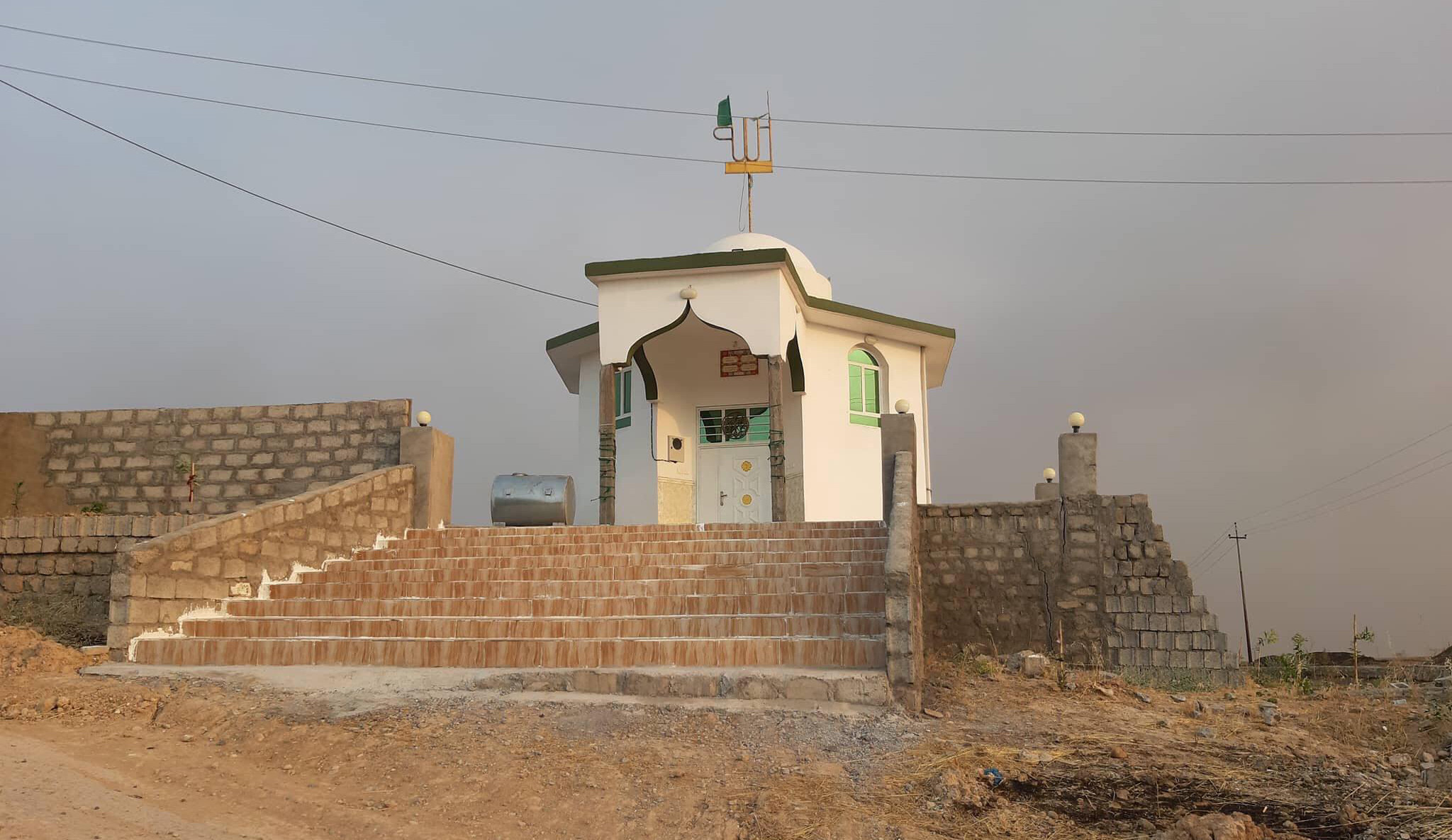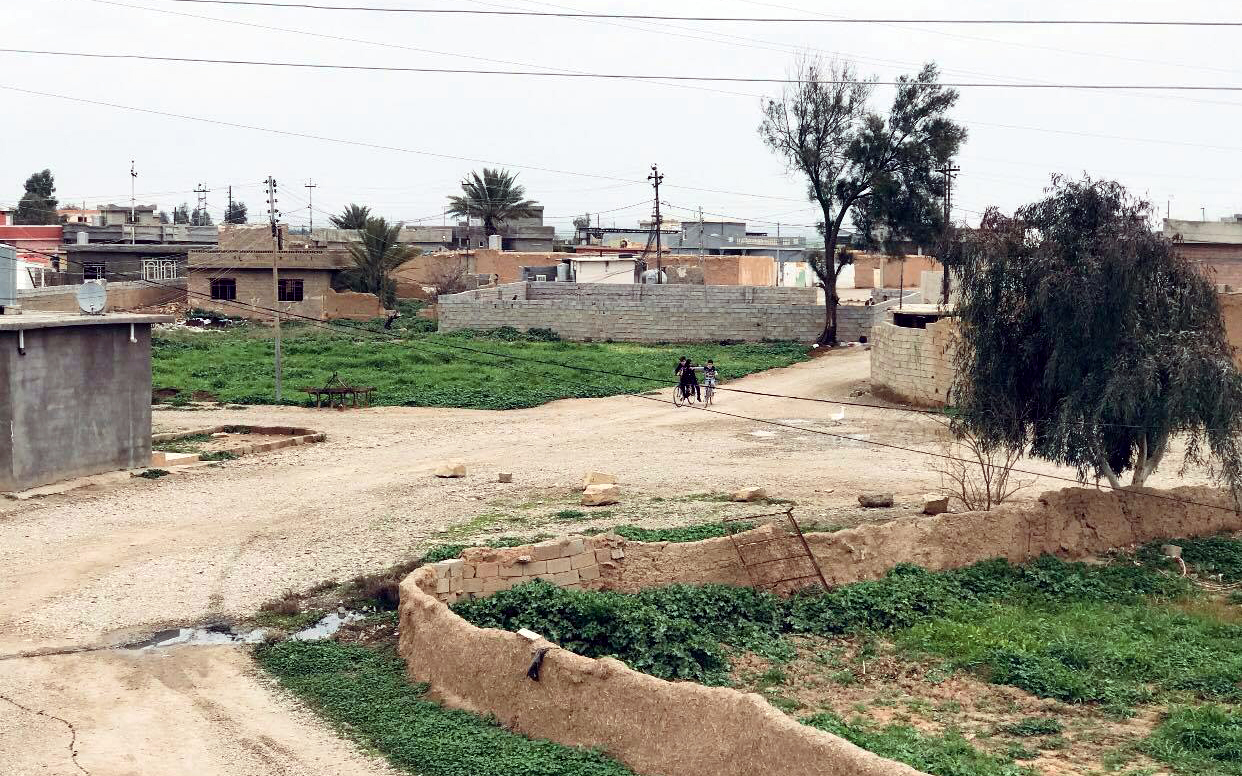Members of Iraq’s Kakai minority fight on two fronts. While the security forces have enforced strict measures to prevent the spread of the coronavirus, the Kakais, on one hand, are concerned about their health, and, on the other, about the threats posed by the armed groups against them and their sacred sites.
With rising uncertainty among them, the Kakais have been attacked up to 10 times, particularly in both northern provinces of Kirkuk and Nineveh since the spread of the coronavirus and the imposed curfew over the past two months.
The surge in the violence coincides with the involvement of the Iraqi forces with the enforcement of the national lockdown since mid-March.
Threats on the Kakai villages remain imminent
Threats on the Kakai villages remain imminent; we have been attacked more than once by the elements of the Islamic State group (IS) and this has left impact on the life of the local residents,” Layla Sadiq, a Kakai woman activist in Daquq, southern Kirkuk, said.
There have been several confrontations between the Iraqi forces and the members of the (IS) militants, killings 23 IS members, according to the War Media Cell of the Iraqi government.
Rajab Kakai, a civil society activist, told KirkukNow that, “the Kakai villages are located in the confrontation lines between the security forces and the armed groups, as a result there are frequent security incidents and the rise of violence in these areas.”
The predominantly Kakai villages which have been subjected to violence located in Daquq district, 44 km south of Kirkuk.
In one particular incident, the Kakai cemetery in Ali Sarai village of Daquq was damaged on March 27, destroying several headstones of the graves; this was the second attack on the cemeteries of the group in two months.
Mariwan Gharib, a villager of Ali Sarai, said that “such act is our greatest concern as this is far from any human and moral thought; they are a sabotage group targeting our history and sacred sites.”
Ali Sarai Village, located 10 km south west of Daquq, has the grand Kakai cemetery.
Rajab Kakai added that, “No one has been arrested for the damages done to the Kakai cemeteries…these incidents are in the midst of the coronavirus lockdown as most of the security forces are busy with taking such necessary measures.”
Meanwhile, on the evening of March 15, 2020, one of the biggest Kakai cemeteries was attacked in Sofiya village in the Nineveh plains, , in which 49 headstones of the graves were broken.
Walid Agha Kakai, head of the Kakai tribes in Erbil and Nineveh, said, “we’re sure that such inhumane acts are those of members of the Islamic State (Daesh) and the other extremist groups.” “We are concerned about that Kakais in Iraq are continuous victims, and we aren’t protected.. We pay the price for being Kurdish and a different sect,” he added.
Sofiya is one of the biggest Kakai villages in Iraq which is located between the Khabat and Gwir districts, but it is under the jurisdiction of Erbil province.

Nineveh, a renovated Kakai temple in Nineveh plains, 2019. Photo: KirkukNow
Members of the Kakai community live in many areas in Iraq including its the Kurdistan Region, Nineveh, Kirkuk, Halabja, Erbil, Khanaqin, and other places in Diyala province. Unconfirmed figures show that the Kakai Population is estimated at 100 thousands.
Zyad Fahad, a Kakai figure, spoke on the violent incidents, “that is a new plot against the Kakais, we call upon the security forces to stop such enmity and prosecute criminals in order to deescalate the situation.”
We call upon the security forces to stop such enmity and prosecute criminals
Kakais have for years have been subjected to violence and their areas were instable.
The villagers of Mantiq evacuated their village in early 2020 due to instability; this has become the seventh Kakai village which was left by its villagers in 2020
Omed Said Huessein Kakai, the former commander Kakai Popular Mobilization Forces (PMF), said that there were attacks on the Kakai villages in Kirkuk, Nineveh, and Diyala, “but fortunately, no serious causalities have been reported so far.”
He also said that occasional clashes erupt between the federal police forces and the armed groups.
Kakai minority has numerous temples in Kirkuk, Nineveh, and Halabja, but their religion has not formally been recognized by the Iraqi constitution.
Abu Raza Najar, deputy commander of Kirkuk Joint Operations, told KirkukNow in March, “the IS sleep cells have resumed their attacks due to both security and political vacuum.”
Kakai, like the Turkmen, Christian, and Ezidi minorities, were subjected to ISIS atrocities from 2014 to 2017. Many Kakai families still live in displacement, to the fact that 10 percent of the 787 Internally Displaced Persons (IDPs) are Kakais, Turkmen, Shabak, and Armenian.





